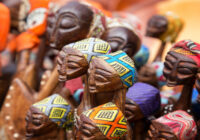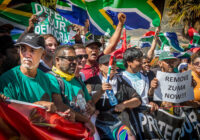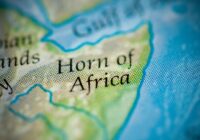In the face of neglected crises, the ICC’s resurgence is a welcome boost to the fight against impunity.
Not unlike any other part of the world, Africa has not always had positive experiences with outsiders. The slave trade and colonization left an indelible scar. The ghost of King Leopold II haunts Africa in the same way as Lord Curzon causes nightmares in India. Yet not all of Africa’s interaction with the world was bad. In fields like public health, Africans are adopting emergent global best practices and now live longer as well as healthier.
In the era of globalization, there is no escape from the interconnected world. Africans often use Korean cellphones, drive Japanese cars, read English literature, listen to American songs and have Indian doctors. Despite its myriad ethnic identities and the challenges that come with their interaction and interrelations, Africa is a rich cultural melting pot. Even landlocked Zambia has Chinese chicken farmers whose young children now feel African.
With such worldwide integration from which no region is immune, it is only natural that there is discussion as to the rules of the game. The World Trade Organization, the World Bank, the International Monetary Fund and the United Nations have been operating in full force in Africa for a while. The International Criminal Court (ICC) is a more recent entrant and has a more chequered past.
SUPPORTER OF ICC TAKES CHARGE OF AFRICAN UNION COMMISSION
The October 2016 edition of Africa This Month examined how the ICC had got into trouble. A court that has the lofty ideal of ending impunity for perpetrators of grave international crimes is now perceived by many as one that picks on African leaders alone. Last year, three African countries withdrew from the ICC, triggering questions about its relevance and survival.
This month, the ICC got a shot in its arm. In a fiercely competitive election, a supporter of the ICC won the chairpersonship of the African Union Commission. After seven rounds of voting, Chad’s Moussa Faki Mahamat beat favorites Amina Mohamed of Kenya and Abdoulaye Bathily of Senegal. In the final round, Mahamat was up against Mohamed who was the favorite with South Africa supporting her. Yet Mahamat managed 28 votes while Mohamed could only win 25.
This election was hugely significant because the Chadian supports the ICC while the Kenyan opposes it. Her president, Uhuru Kenyatta, recently had a case before the ICC and denounced the tribunal as a “toy of declining imperial powers.” Given Africa’s colonial past, this charge resonates with many Africans. Yet this was not enough to stop Mahamat, who campaigned on the promise of working for an Africa where “the sound of guns will be drowned out by cultural songs and rumbling factories.”
Before we applaud Mahamat too heartily, it is important to remember that Chad is not exactly a democracy. President Idriss Deby came to power in 1990 with the help of the French secret service and still sits on the throne. He won a fifth term in April 2016, and his regime is regarded as authoritarian with a none-too-glorious record when it comes to human rights. The BBC reports that Deby’s critics accuse him “of putting clan before country.” It also observes that the only television station in Chad is state-owned and its coverage favors the government.
In contrast, Kenya is a democracy, albeit a flawed one. So is South Africa. Mahamat might support the ICC and may go around Africa calling for free and fair elections or championing human rights, but it remains to be seen whether he will impartially call out abuses in Chad. Reality everywhere is messy and Africa is no exception.
With Mahamat in charge, Canada’s campaign to save the ICC gains a boost. A bigger boost might have come from the South African High Court. It ruled that South Africa’s decision to leave the ICC was “unconstitutional and invalid.” The new government of The Gambia decided to stay in the ICC, reversing the decision of the earlier authoritarian regime. The latest developments indicate that, while some African governments might have lost faith in the ICC, there is clearly no consensus in the continent on the issue. Furthermore, as per the BBC, the court is not exactly an issue that attracts widespread public concern, making it more difficult for African leaders to beat the anti-colonial drum against it for too long.
NEW SOMALI PRESIDENT TAKES CHARGE
As the African Union ushered in a new leader in Ethiopia, Mohamed Abdullahi took charge as president in neighboring Somalia. He promised to restore dignity to this troubled nation in the Horn of Africa, but warned that it would take another two decades to “fix” the country.
In Abdullahi’s words, Somalia has experienced conflicts and droughts for the last 26 years. The country has limited resources and is on the verge of famine after a prolonged drought. Since the collapse of Siad Barre’s military regime in 1991, Somalia has lacked effective central government. Instead, it has experienced civil war and decades of anarchy.
Abdullahi has a full plate. Ferocious al-Shabab fighters have fired mortar shells near the presidential palace. Just before Abdullahi’s inauguration, a car bomb killed 39 people in a busy market. The al-Qaeda-linked al-Shabab group has promised a “vicious war” against the new government. Somalia is so unstable that Abdullahi was sworn in at a ceremony held in the highly-secured airport zone because of the risk of an attack.
Abdullahi is a dual-Somali citizen and a former prime minister. As per Politico, he is still technically employed as an equal opportunity compliance officer at the Buffalo office of the New York Department of Transportation. According to the same news outlet, he spent 25 years in the US, serving on local campaigns, acting as a spokesman for other refugees, absorbing lessons of civil society, and learning the basics of American mid-management before returning home to fight for peace, prosperity and democracy in Somalia.
This makes a stirring story, but some allege that Abdullahi “bought his way to victory.” He is the son of a government employee and comes from a well-connected clan. Abdullahi was posted in the Somali Embassy in Washington, DC when he decided to stay back because he deemed his native land to be too unsafe to return. Soon, he turned into a community organizer who was whipping up votes for a Democrat-turned-Republican. In fact, Abdullahi registered as a Republican and managed to wrangle a government job when his candidate won.
Amidst his various activities, Abdullahi earned a master’s degree in political science. In his thesis, Abdullahi wrote: “The Somali people have been victim of colonialism, dictatorship, and warlord thugs. Now, they are at the crossroad of two extremist ideologies: George W. Bush’s Christian ideology on one hand, and Islamic radicalism on the other, which want to wage a holy war on each other not only in Iraq and Afghanistan, but also in Somalia as well. Sadly, the people who ultimately suffer most form the majority: they do not subscribe to these radical ideologies.”
Soon enough, Abdullahi was on the presidential shortlist to be prime minister. It turns out his story is not that uncommon. Diaspora politicians make up a third of Somalia’s federal parliament. In 1996, tribal elders elected Hussein Mohammed Farah as president. He was “a 33-year-old corporal in the Marine Reserves who a year earlier was making $9 an hour as a clerk in the suburbs of Los Angeles.” It helped that he was the son of Mohammed Farah Aidid, the warlord who had fought the US in the 1990s.
Abdullahi’s biggest challenge will be to connect “a constitutional system that depends on foreign financial support” to the daily lives of his people. Ultimately, the process of Somali state formation and democracy building will only succeed if the Somalis themselves, from each region of the country, are convinced they have a secure stake in it.
WORLD’S MOST NEGLECTED CRISIS
As the Chinese might say, these are interesting times. There are crises galore around the world. In 2014, numerous news outlets reported that the number of refugees fleeing war or persecution exceeded 50 million for the first time since World War II. In the Lake Chad Basin, 17 million lives are at risk. Most are women and children.
Four countries form the Lake Chad Basin: Nigeria, Niger, Chad and Cameroon. The crisis began in Nigeria thanks to Boko Haram. A brilliant 2012 special report by Reuters analyzed the anatomy of Boko Haram’s rebellion and still remains relevant. Mohammed Yusuf, its founder, declared Western teaching (boko) to be forbidden (haram) and built a following among disaffected young men in the northeast of the country.
 In 2009, a full-scale rebellion erupted. Yusuf was captured and shot dead in police custody. Some 800 people died in five days of fighting. Since then, violence has only escalated. A dirt poor part of the world where there is little employment and much repression creates much anger among young men who feel a burning sense of injustice with no salve of opportunity soothing their burns. In the words of author and journalist Abul-Hasanat Siddique, this leaves them susceptible to charismatic “clerics with a cause.”
In 2009, a full-scale rebellion erupted. Yusuf was captured and shot dead in police custody. Some 800 people died in five days of fighting. Since then, violence has only escalated. A dirt poor part of the world where there is little employment and much repression creates much anger among young men who feel a burning sense of injustice with no salve of opportunity soothing their burns. In the words of author and journalist Abul-Hasanat Siddique, this leaves them susceptible to charismatic “clerics with a cause.”
Many in Boko Haram leap to the claim that they are fighting for justice. Many believe in jihad. But most experts believe that Boko Haram has also become a convenient cover for opportunists. To quote Reuters, “Criminals, political thugs and gangs hide beneath its umbrella, making it hard to judge its size and scope.” Most Boko Haram fighters are merely disillusioned young men with loose ties to religious ideology or religion. Few can even read the Quran.
Crackdown by government forces is invariably brutal and leaves smoldering resentment among villagers who suffer from their bombs, bullets or bayonets. Many young men end up joining Boko Haram as a reaction to gratuitous violence by government troops. They end up inflicting horrific violence in turn. A vicious cycle of violence has since resulted in a horrific campaign of attacks on civilians and mass abductions. By now, the conflict has claimed thousands of lives and millions have had to flee.
Currently, the situation is exceedingly fragile with millions at risk of famine. Unlike Syria or Somalia, the Lake Chad Basin rarely gets airtime or attention. It needs urgent humanitarian help costing a mere $1.5 billion, a fraction of the cost of a shiny new $13 billion aircraft carrier or of Mark Zuckerberg’s over $50 billion fortune.
MANDELA’S LAND TURNS AGAINST IMMIGRANTS
As the global number of refugees skyrocket, many societies around the world are turning against outsiders. US President Donald Trump rode to power exploiting deep unease about Mexican immigrants. In European countries, voters fear refugees flocking to their shores from the Middle East and North Africa. In India, the specter of Bangladeshis crossing the border gives many sleepless nights. It turns out South Africa is no exception to this trend.
Clashes broke out at anti-immigrant protests in Pretoria, the nation’s capital. Police fired stun grenades, rubber bullets and water cannons to control the crowds. The entire focus on the refugee/migrant crisis in Europe omits an important fact. African countries have had to deal with a refugee/migrant crisis many magnitudes the size of what Europe faces. Consequently, there is pressure on scarce resources and scant public services. There is also greater competition for hard-to-find jobs. This leads to tensions between hosts and the outsiders.
In South Africa this month, “angry mobs attacked Nigerians and looted shops belonging to Somalis, Pakistani and other migrants in townships around Pretoria and parts of Johannesburg.” Some protesters blamed Nigerians for drug dealing and called for greater checks on foreigners coming into the country. Mamelodi Concerned Residents, the main group behind the protests, “blamed foreign nationals for taking jobs and accused them of being involved in prostitution rings and drug cartels.”
The great irony for the rest of the continent is that of all places, xenophobia is prevalent in South Africa. Africans recall standing with South Africa to the bitter end during the fight for freedom from apartheid — the most vulnerable time in the country’s history. Incidents of xenophobia are, therefore, processed by the rest of the continent as a slap in the face.
To his credit, Jacob Zuma, the country’s embattled scandal-ridden president, defended immigrants. He said most of them were law-abiding and contributed significantly to South Africa’s economy. So did many other politicians, intellectuals, churches and civil society groups. The Nelson Mandela Foundation condemned the anti-immigrant protest and criticized authorities for “giving permission for a march of hatred.”
The clashes show that South Africans are as human and as fallible as human beings elsewhere. They also demonstrate that the influx of outsiders in any society creates both opportunities and challenges. Governments and citizens have to work ceaselessly to amplify the former and address the latter while exercising restraint, so tensions do not boil over. Nelson Mandela reminds us that “to be free is not merely to cast off one’s chains, but to live in a way that respects and enhances the freedom of others.”
The views expressed in this article are the author’s own and do not necessarily reflect Fair Observer’s editorial policy.
Photo Credit: STRINGERimage
Support Fair Observer
We rely on your support for our independence, diversity and quality.
For more than 10 years, Fair Observer has been free, fair and independent. No billionaire owns us, no advertisers control us. We are a reader-supported nonprofit. Unlike many other publications, we keep our content free for readers regardless of where they live or whether they can afford to pay. We have no paywalls and no ads.
In the post-truth era of fake news, echo chambers and filter bubbles, we publish a plurality of perspectives from around the world. Anyone can publish with us, but everyone goes through a rigorous editorial process. So, you get fact-checked, well-reasoned content instead of noise.
We publish 2,500+ voices from 90+ countries. We also conduct education and training programs
on subjects ranging from digital media and journalism to writing and critical thinking. This
doesn’t come cheap. Servers, editors, trainers and web developers cost
money.
Please consider supporting us on a regular basis as a recurring donor or a
sustaining member.
Will you support FO’s journalism?
We rely on your support for our independence, diversity and quality.






